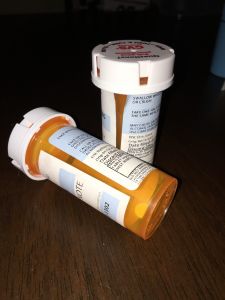As of now, there is no gap in the opioid use. This epidemic transverse all economic and racial divides. It has gotten to the point where it doesn’t matter where you are from or education you have. It affects all people. Whether it started with injury, depression or simple peer pressure, opioids see no difference between any of them.
Opioids can vary from prescription medication to heroin. There is way too many medications to list that fall under opioids. When it does come to prescription medicine, opioids are used for relaxing and taking pain away from the body. They are more known as a narcotic pain medication.

Usually, people do not just start with heroin, they get addicted to opioid painkillers and then it often leads to heroin abuse. From drugabuse.com, it says that 3 out of 4 people that were addicted to heroin were introduced to opioids through painkillers. Most of the people dying from painkiller overdose are women. The percentage of deaths from painkillers increased more than 400 percent among women whereas it is 265 percent for men.
“I believe it is frightening. We are losing close to 200 people a day to drug-related deaths. Think about that for a moment. If an airplane full of passengers crashed once daily, with everyone on board not surviving, what would you think?” Dr. Pat Brown said.
Dr. Pat Brown is a professor at Cabrini University and he teaches ECG 200 Rethinking Addiction.
“This is a horrific amount of people dying every day and we aren’t including death by alcohol-related causes in that number,” Brown said.
Most people do not get their opioid painkillers from doctors. It was found through a study that 60 percent get them off of friends and family members for free.
“So we don’t really talk to my uncle much because he was addicted for most of his life. But when my parents would talk to him or my cousin he was always on edge and aggressive,” Julianna Pierce said. “Most of my mom’s side was addicted to drugs or alcohol.”

Pierce is a sophomore at Cabrini University. Her uncle was addicted to opioid drugs for most of the time she has known him.
“He had probably been addicted for probably 10+ years. He’s clean now and probably has been for a couple years,” Pierce said.
For some, it doesn’t have to be a family member. You could be coworkers and see that something is off in someone.
Nicole Cassey, a sophomore at Cabrini University, worked with someone that was addicted to opioids for a while.
“They were addicted for five years, they are clean now and have been for three years,” Cassey said. “We worked together so I noticed when they just weren’t all there and we became good friends so after they became clean I noticed a whole new person and I realized why.”
Sadly, some people can’t even tell you about a family member or coworker that is clean. They have unfortunately passed away from overdosing on these opioid painkillers.
It is not too late to go and get help. There are several resources all around to help you get over your addiction.


